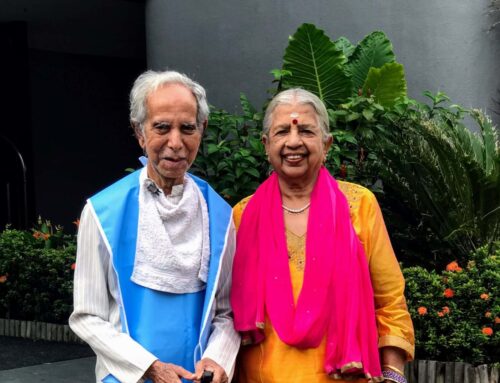So you don’t like uncertainty: are you sure about that?
Shoba Narayan
Last Updated: August 12. 2009 5:37PM UAE / August 12. 2009 1:37PM GMT
There are two kinds of people in this world: those who are comfortable with uncertainty and those who aren’t.
The poor are forced to live with uncertainty in the most basic sense – not knowing if they will have enough money for their next meal. Poor boys run away from home. Seven Pakistani immigrants starved to death on a ship transporting them to Dubai. What drove these men to choose an uncertain future in a new land over the certainty of their current circumstances, however unpleasant? Does running away reflect a comfort with uncertainty or hope for a better future? Or both?
I’m comfortable with uncertainty. My college professor, Greely Myatt, once told me – as I was teetering on top of a four-metre ladder fixing a sculpture I had just created – that I took risks that were unimaginable to most people. This happened just before he failed my Master’s thesis, which is why I remember it so well.
At the age of 20, I was proud of my appetite for risk. Now I’m not so sure. I have skydived from planes and jumped off cliffs, but I doubt that I will do so again – at least until my children are grown-up enough not to need me (does that ever happen?). The older we get, the less comfortable we are with uncertainty.
In the East the need for certainty takes many forms, from a belief in astrology to reliance on the local guru: blaming fate for your problems and trying to ride them out rather than solve them. This fatalism is a curious eastern contradiction, reflecting a resigned acceptance of the monkey wrenches that fate doles out along with the need for certainty through propitiating a higher power. During the recent solar eclipse, hundreds of families buried their paralysed children neck-deep in mud, believing that this combination of burial and eclipse would cure their children. Is that blind faith, or an extreme stance against uncertainty?
Learning to be comfortable with uncertainty is a valuable asset in these turbulent times. Scientists approach it through logic. Richard Feynman, the boy-genius Nobel Prize-winning physicist, was supremely comfortable with uncertainty. In an interview once he said: “I have approximate answers and possible beliefs and different degrees of certainty about different things, but I’m not absolutely sure of anything”: this from a man who played bongos, with their exacting, even absolute, rhythms.
I think he was being facetious when he said that he wasn’t absolutely sure of anything. Rhythm is an absolute certainty. You cannot fudge or approximate a beat. Particle physics, Feynman’s speciality, involves absolutes. I think his real point came later in the same interview: “I don’t have to know an answer. I don’t feel frightened by not knowing things, by being lost in the mysterious universe.”
Isn’t that the nub of it? Uncertainty is frightening, terrifying even, which is why so many of us try to arrange our lives with order and certainty. Even Heisenberg’s uncertainty principle was challenged by Einstein himself. In my limited understanding of the principle, it has less to do with uncertainty in the mystical universal sense and more to do with precision in measuring the position and momentum of particles.
Einstein’s argument with it, on the other hand, has to do with uncertainty of the kind I am talking about here. Einstein believed that random events were not random; it was because we didn’t have a fundamental understanding of the universe that we didn’t understand randomness. He believed that uncertainty was a reflection of our ignorance and not a flaw in the cosmos.
Poets and artists, conversely, thrive on uncertainty. They hate to be boxed in. They are predictably unpredictable. Vincent Van Gogh, whose paintings hit you with an almost physical force, once said: “For my part I know nothing with any certainty, but the sight of the stars makes me dream.”
In the end, isn’t that what we all have to take succour from in this uncertain world? The sight of stars, the crest of the moon, the curve of a baby’s body as it rests on a father’s shoulder, the softness of your mother’s cheek and the mere sight of a loved one that makes you exhale out your stress. The universe may deal out an uncertain hand but love, at least from a few people, can be a certainty. And love can be cultivated.
Shoba Narayan is a journalist based in Bangalore, and the author of Monsoon Diary: A Memoir with Recipes




The point is that we live with a mock sense of 'certainty' – its just that we have our comfort zones and going beyond that just means taking risk or being foolishly adventurous. If you fall down and break your leg while climbing the stairs, its unfortunate. But if you go up a hill and break your leg, its because you took a risk.One could argue that you climb stairs everyday and you are less likely to fall but you don't climb a hill too often… but then, that's what its all about – your comfor zone.